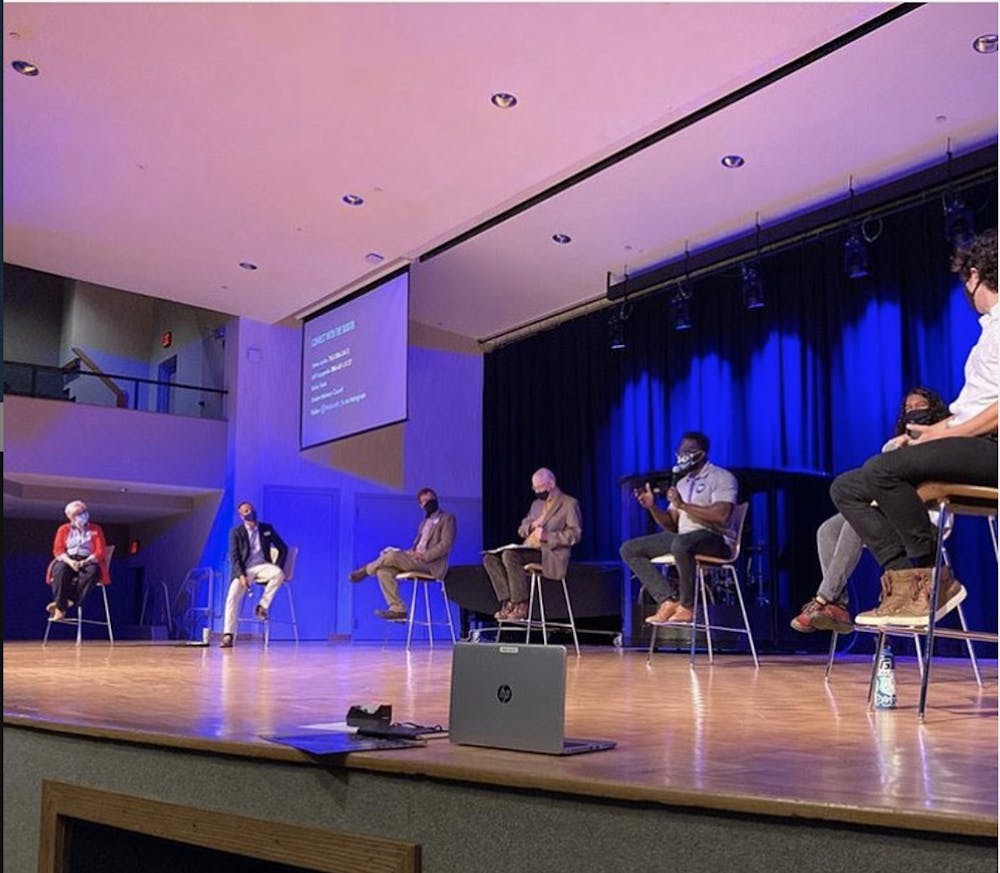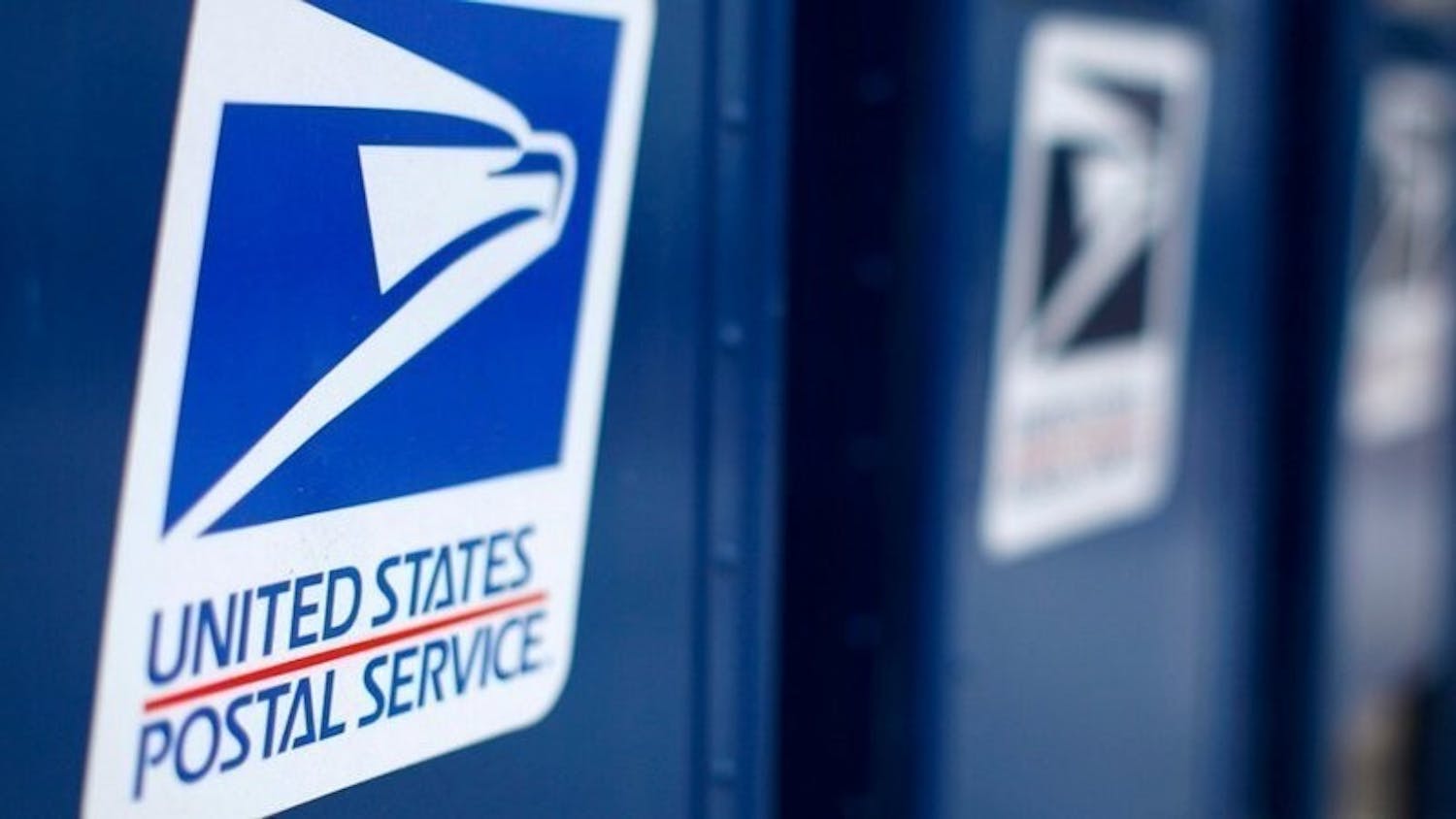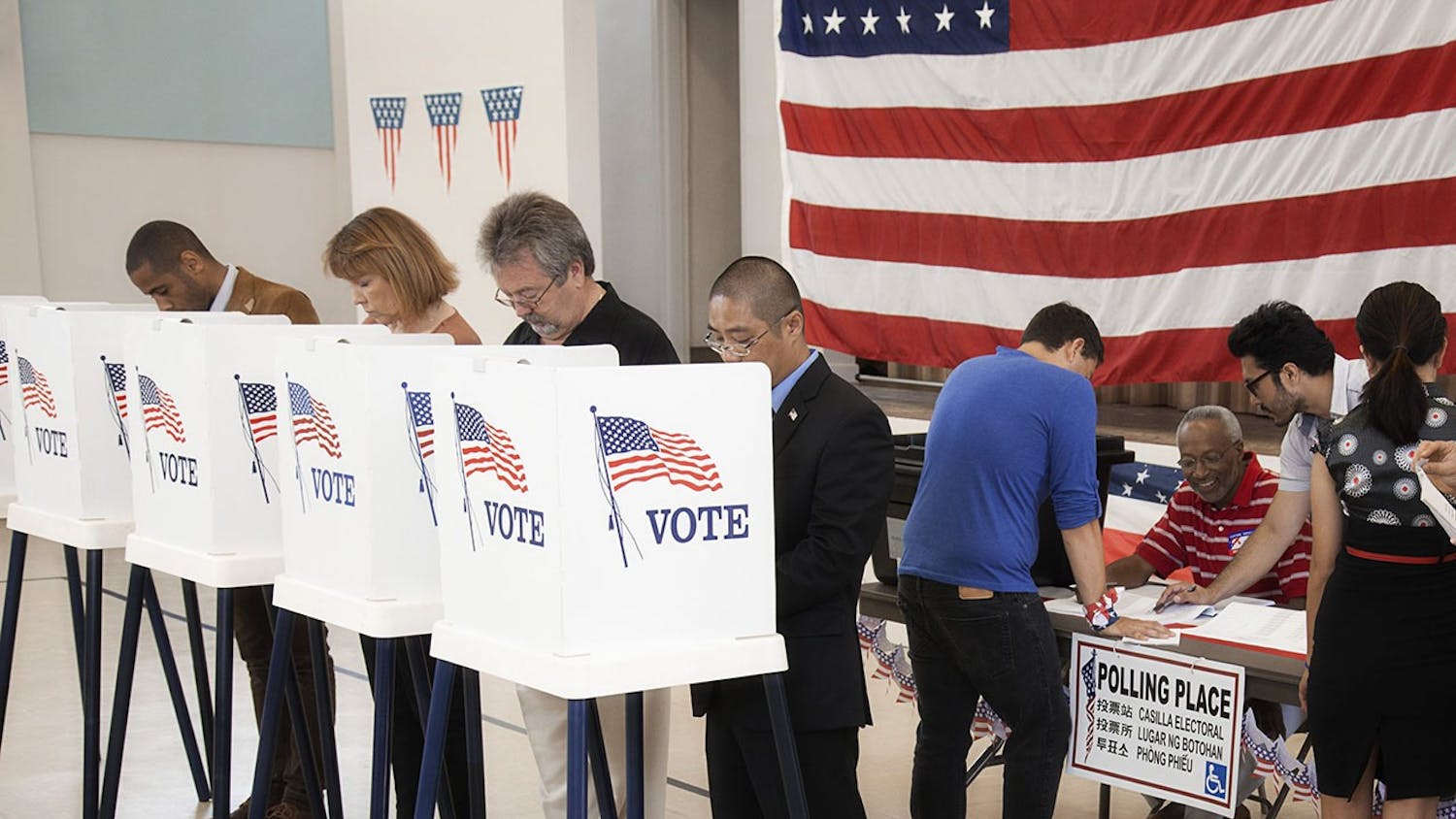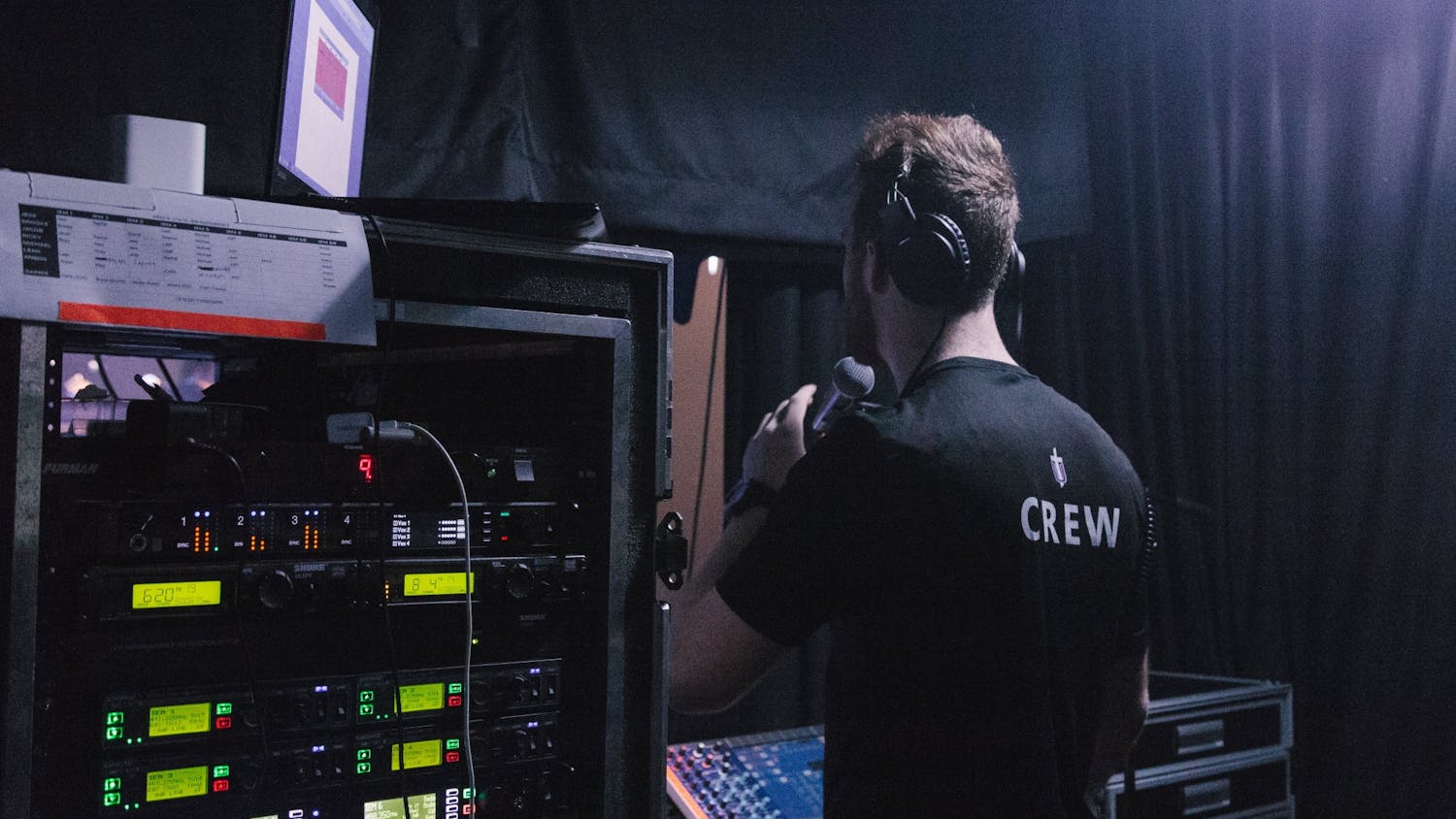In an age where the presidential debate is full of the candidates interrupting each other and dancing around particular questions, a series of meetings discussing how to engage thoughtfully in politics is unusual. Normally it may be hard to find, but that is just what Taylor students have at their disposal this election season.
MAHE student Bailey Sauls, who helped start the program said, “We want to be able to recognize, to be able to aim and recognize some of the tension and polarization in politics, recognize that it’s OK to enter into those things”.
With five speakers from several different departments, one of them even from Indiana Wesleyan University (IWU) staff, there were plenty of different sources of input on how to approach the election well.
Professor of communication Jeff Groeling had a special emphasis in the panel as he shared thoughts on how the media affect our communication, especially in the election season.
“My job is to try to bring attention to (digital media), recognize how this influences what we think and why we think it,” said Groeling. “And then, what are you going to do about it?”
The answer to that question is to be careful of your biases. Joel Olufowote, associate professor of political science at IWU, explained that while it is OK to trust your beliefs, which you have tested, our biases can be damaging because they are unresearched, often ungrounded.
True to that idea, the panel worked to examine the process, not just push their opinions.
One of the more discussed points in this panel was what role the media and its instantaneous effect have in the world. People focus more on the moment and on the minutiae, which affects how candidates play to the crowd.
When Jakob Miller, assistant professor of political science, was talking about the presidential debates he said, “It’s not the old long-winded debates about policy, or issues, it’s more fishing for a really good sound bite or a really good clip.”
This reflects on modern politics — being quick and being “right” are some of the most important factors. Needless to say, the panel looked at how this can create a sort of toxicity around the subject.
“When we start seeing others as left or right first, that is when we know we have gone over the hump,” Olufowote said.
Assistant professor of communication Julie Borkin shared how her own family tears itself apart over politics. This is the point, she said, where you have to not be too invested in politics. You should have a desire to know and help the truth along, but when it gets to the point of hurting relationships you need to decide if the point is actually worth pressing.
When there are people who are willing to listen, Olufowote advises people to find ways to enter into these sorts of debates in a non-confrontational way.
Much of the focus was on the election, but the panel took time to look further than that and remember that whoever wins, God is still in control.
Last Monday, Sept. 28, the same group hosted a speaker on Christian nationalism, and on Tuesday, Sept. 29, they hosted a showing of the first presidential debate.
As easy as it is to begin to take sides, this is not the point of these events. Sauls reiterated another one of the host’s points and said, “It feels important to be able to vote well, so he talked about getting behind the how and the why of voting rather than telling you who or what to vote for.”
As well as the facilitators, students in attendance thought that the event went well, and some planned on returning for more after the first Tuesday night event.
Junior Logan Lockhart is a social studies education major, and he decided to go to the Tuesday night event because he is interested in the intersection of politics and a Christian worldview.
“The speakers were well prepared, well versed in the subjects they were speaking on, came from a variety of disciplines and really painted the picture of discerning media in a holistic view,” Lockhart said.





